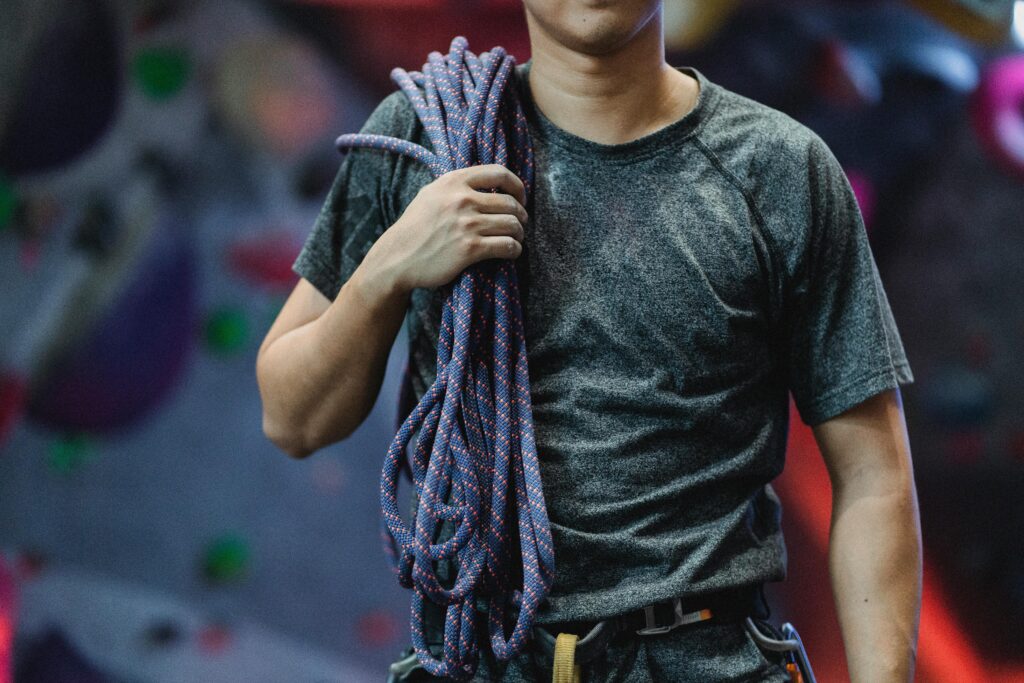.
Sunrise and Sustenance
The day begins early, often at the crack of dawn. The light filtering through the tent or van windows is nature’s gentle alarm clock. For those based in a home or training facility, it’s the sun’s rays breaking through curtains that signal the start of another day on the wall.
Breakfast is fuel. A balanced meal—think oats, fruit, nuts, and perhaps a touch of honey—provides the energy needed for long hours of climbing. Nutrition is taken seriously; it’s not just about calories but the quality of energy to sustain peak performance.
Morning Training or a Mission to the Crag
Mornings often involve a warm-up session. For climbers in training, this might mean yoga or mobility exercises to prepare joints and muscles. Indoor climbing gyms equipped with hangboards, campus boards, and bouldering walls become arenas for fine-tuning finger strength, core stability, and precision footwork.
If the day’s agenda involves outdoor climbing, it’s time to pack gear: harness, climbing shoes, chalk, ropes, quickdraws, and maybe a guidebook or topo map. The trek to the crag can range from a short stroll to a demanding hike, often accompanied by breathtaking scenery.
Climbing and Problem Solving
At the heart of a climber’s day is time on the rock. Routes and boulder problems are not just physical challenges but mental puzzles. Professional climbers work on their projects—specific climbs that push their limits.
A project might require multiple attempts over days, weeks, or even years. Success involves meticulously analyzing moves, experimenting with sequences, and refining techniques. Between climbs, climbers rest, hydrate, and share beta (information about the route) with their peers.
Lunch and Recovery
Midday marks a pause for lunch. Often lightweight and nutritious, meals might include sandwiches, wraps, or energy bars. Recovery time is critical, and climbers use this break to let their muscles recover while basking in the camaraderie of their climbing partners.
Afternoon Sessions
For those on the crag, the afternoon might bring attempts on easier routes or exploring new climbs. For others, it’s back to the gym for strength training, endurance circuits, or specific drills. Climbing involves a balance of power, technique, and mental fortitude—and every session builds on these foundations.
Sunset Reflections
As the sun dips below the horizon, gear is packed away, and the day’s efforts are assessed. Success is not always measured in completed climbs; progress might mean unlocking a challenging move or gaining insight into a project. For professional climbers, perseverance is the real achievement.
Dinner is both a reward and replenishment. Hearty meals—loaded with protein, vegetables, and carbs—help repair the body after the day’s exertions. Evenings are for relaxation: reading guidebooks, editing climbing footage, or engaging with fans on social media.
The Dream Cycle
Sleep is sacred. It’s when muscles rebuild, and the mind processes the day’s experiences. Climbing dreams are common, a mental rehearsal for future ascents.
A professional climber’s life is a blend of passion, discipline, and adventure. While the challenges are real, so is the joy of pursuing a life among the cliffs and summits. For many, it’s not just about the climb but the journey—and every day offers a chance to rise a little higher.


Pingback: Best Climbers Throughout History: Legends of the Vertical World - gearyourgrip